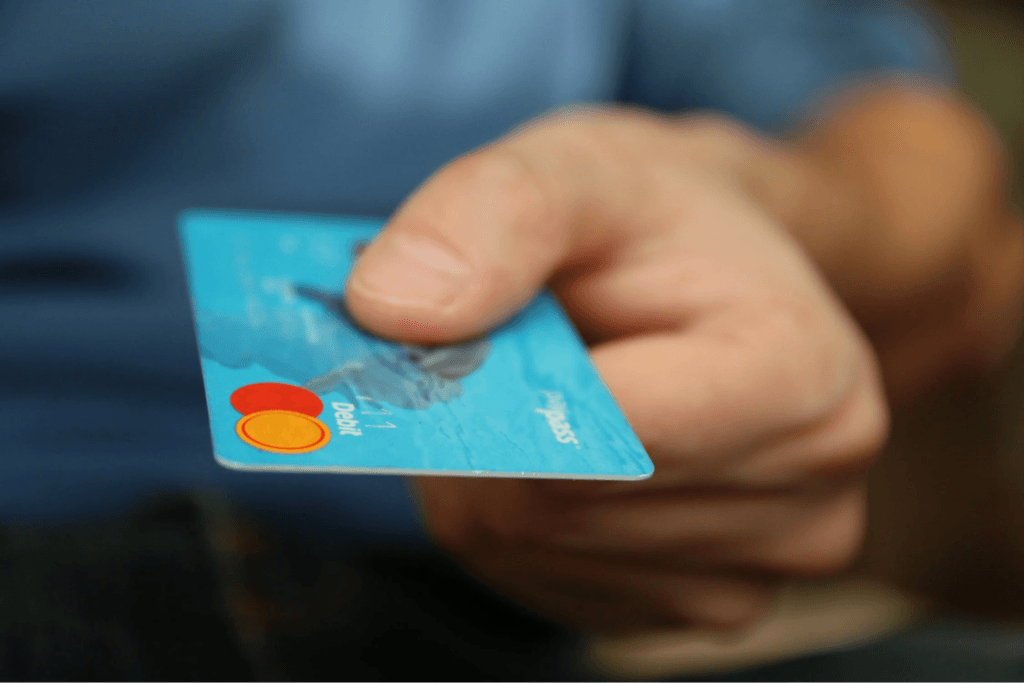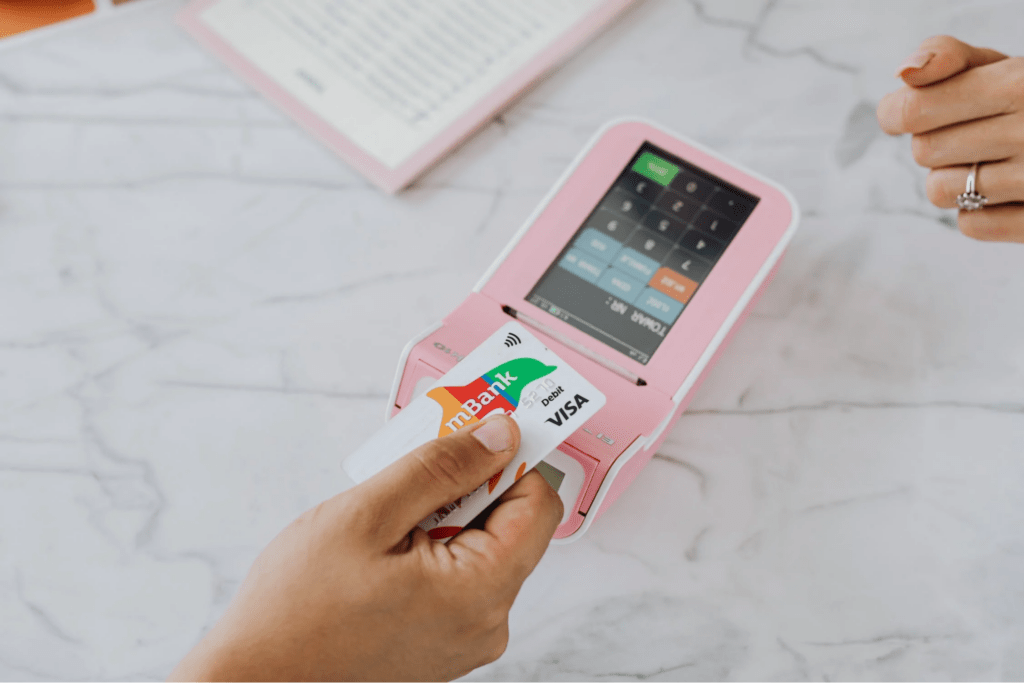Can I Build My Kid’s Credit Score (And How To Do It)?

Start Building Your
Child’s Credit
While most adults have a credit score, one age group is notably absent—80% of young adults aged 18 to 19 do not have a credit score and are credit invisible.
The main reason for this is that most children and young adults have limited credit-building options. If your child is among them, you may ask, “Can I build my kid’s credit score?”
This guide explains why your child may struggle to establish their credit profile and how you can help. You’ll learn about the benefits and potential pitfalls of common solutions so that you can find the most effective one.
Why Children Can’t Build Credit
To start a credit profile, you need a financial product like a loan or credit card. Getting one as an adult typically isn’t a problem, but your child will likely find it hard to borrow from an average bank.
If they’re a minor, they can’t do it independently at all. Minors lack the legal capacity needed to enforce a loan agreement, which means they can’t enter one as a primary account holder. Even after your child reaches legal age (typically 18), lenders might be unable to work with them for at least a few more years.
This is mainly because of the Credit Card Accountability, Responsibility, and Disclosure (CARD) Act of 2009. It prohibits banks from issuing a credit card to anyone under 21 unless they meet one of the two conditions:
- Demonstrating an ability to make payments independently
- Having a co-signer who is 21 (or older) and can guarantee for the card
The good news is that the CARD Act doesn’t impact all financial products or completely prevent children from building credit. With parents’ help, children can establish remarkable credit profiles that will open many doors throughout adulthood.
How To Build Your Child’s Credit Score

Source: Mikhail Nilov
There are several methods parents often resort to when building children’s credit profiles:
- Co-signing loans
- Helping them get a secured credit card
- Adding them as authorized users of their credit cards
Before committing to any of these options, you should weigh their pros and cons because each carries certain risks.
Should You Co-Sign on a Child’s Loan?
If your child is a legal adult, you can co-sign on different types of loans, most notably:
- Personal loans
- Car loans
- Private student loans
As a co-signer, you guarantee the loan by claiming to repay it if your child doesn’t. You don’t get access to the funds or can control the child’s spending—you only assume responsibility for the debt and let your child leverage your credit to improve their chances of being approved.
With this in mind, co-signing on a loan can be a risky move, especially if your child doesn’t have adequate financial education or healthy spending habits. You’d have to put your credit and money on the line, which is a decision that requires careful consideration.
You’d also have to find a lender that allows co-signing and is willing to work with young adults with a limited credit history. Not every bank is willing to take on such a risk, so you might have to do some thorough research.
If you find such a lender, your child’s loan will kick-start their credit, and the credit bureau will open a file in their name. Irresponsible behavior can put both your profiles at risk, so make sure your child understands the importance of proper credit hygiene.
How To Help Your Child Get a Secured Credit Card

Source: Pixabay
If you want to support your child’s credit without risking yours, a secured credit card could be a more suitable option. It requires a security deposit that typically serves as a credit limit, which lowers the lender’s risk and makes the card available to people without a strong credit profile.
This is another solution reserved for young adults, as minors can’t apply for secured cards. If your child is of legal age, you can help them get one by making the down payment or encouraging them to save up for it. Keep in mind that a secured card carries the same obligations as a regular one, so you should prepare your child by teaching them all about it.
The main drawback of secured cards is the cost of using them. Most come with a high annual percentage rate (APR), so your child may spend a significant amount of money on interest. This can make it hard to repay the outstanding balance and increase the chances of your child damaging their credit profile.
Is Adding a Child as an Authorized User of Your Credit Card a Good Idea?

Source: Karolina Grabowska
As minors can’t obtain loans or credit cards, some parents try to build their children’s credit by adding them as authorized users of their cards. This way, the child gets a credit file in their name before they can start one independently.
The problem is, not all lenders report authorized users’ activity to credit bureaus. If your bank doesn’t support this option, adding your child won’t have any impact on their credit. Even if it does, this method can be risky for several reasons:
- Your child inherits your credit history, including all potential red flags—If your report shows any late payments, extensive credit use, or other problems, they’ll all show up on the child’s profile
- Many lenders give authorized users unrestricted access to the credit card—Without an option to limit your child’s spending, you expose yourself to a risk of significant debt
- The child doesn’t build an independent credit profile by being an authorized user (they only piggyback on yours)—When you remove your child from the card, all history associated with it gets deleted from their profile
Minors often don’t have sufficient financial awareness and responsibility to be entrusted with a credit card. The risks of adding your child as an authorized user outweigh the benefits, especially since there’s no long-term positive impact on their credit profile.
To eliminate these issues and let parents support their children’s independence, Austin Capital Bank created FreeKick—the safest way to establish and grow your child’s credit profile.
Use FreeKick To Build Your Child’s Credit and Protect Their Identity
With so many restrictions on minors obtaining credit cards, a service like FreeKick that provides credit building features is the workaround you need. Offered by Austin Capital Bank, FreeKick is an FDIC-insured deposit account that helps you build credit for your child while also protecting the identities of your whole family.
Three Steps for Using FreeKick’s Credit Building Service
FreeKick’s credit building service is available for children aged 13 to 25. Take the following three simple steps to help your child establish a credit history early on in life:
- Create an Account—Go to FreeKick.bank, sign up for an account, and choose a deposit that suits your budget
- Set It and Forget It—FreeKick will start building 12 months’ worth of credit history for your child
- Keep Growing—After 12 months, you can either close the account without any fees or choose to continue building credit for your child for another year
This service gives your child a credit head start of up to five years when they turn 18, which will help them save $200,000 during their lifetime through favorable loan terms and other financial perks.
How FreeKick Protects Your Child’s Identity
Child identity theft happens every 30 seconds, and without a secure identity, your child’s credit profile will be standing on a shaky foundation. This is why it’s important to invest in identity protection when you’re trying to give your children a bright financial future. FreeKick’s identity protection services include:
| Services for Minors | Services for Adult Children and Parents |
| Credit profile monitoring Social Security number (SSN) monitoring Dark web monitoring for children’s personal information Up to $1 million identity theft insurance Full-service white-glove concierge credit restoration Sex offender monitoring—based on sponsor parent’s address | Credit profile monitoring SSN monitoring Dark web monitoring for personal information Up to $1 million identity theft insurance Full-service white-glove concierge credit restoration Lost wallet protection Court records monitoring Change of address monitoring Non-credit (Payday) loan monitoring Free FICO® Score monthly FICO® Score factors Experian credit report monthly |
What FreeKick Costs
FreeKick offers two pricing plans:
| FDIC-Insured Deposit | Annual Fee |
| $3,000 | $0 (Free) |
| No deposit | $149 |
With both plans, you get:
- Credit building for six children aged 13 to 25
- Identity protection for two parents and six children aged 0 to 25
Say goodbye to credit card hassle and help your child establish a good credit profile—sign up for FreeKick today.
Featured image source: Ivan Samkov